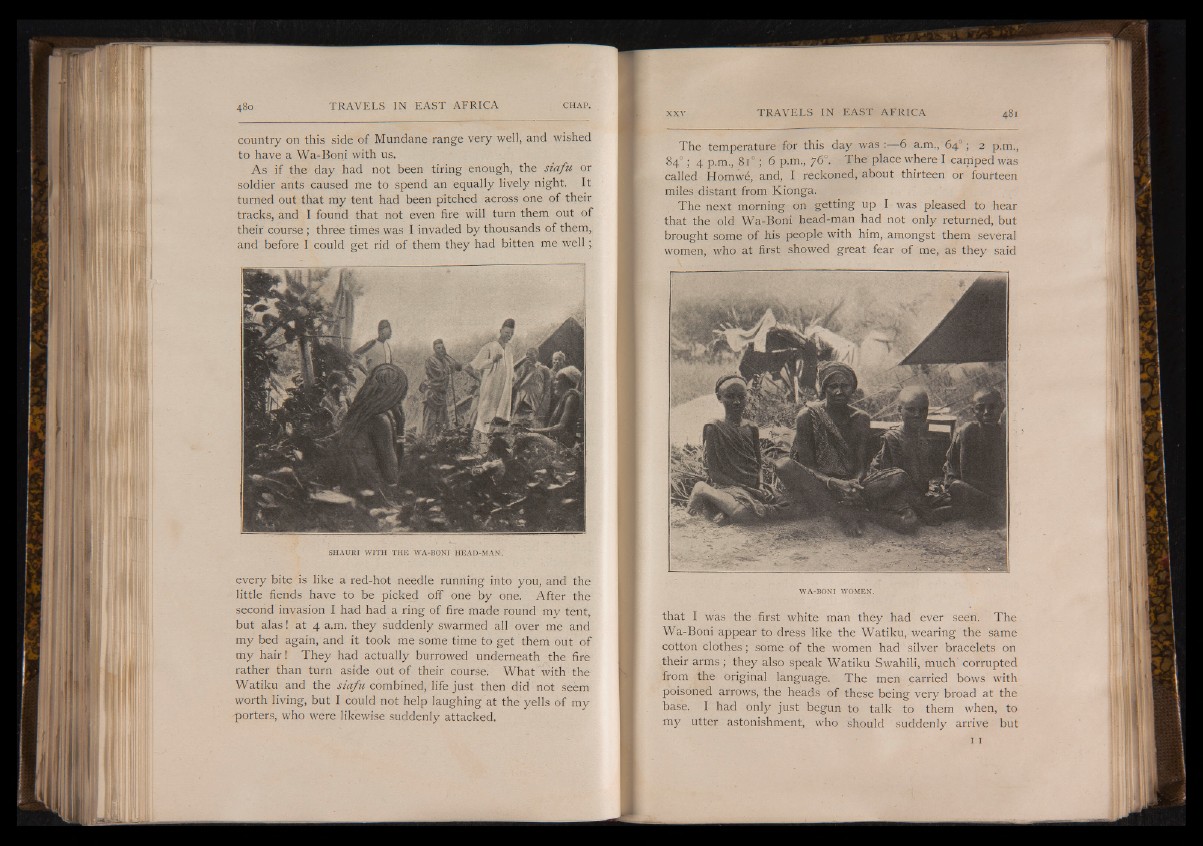
country on this side of Mundane range very well, and wished
to have a Wa-Boni with us.
As if the day had not been tiring enough, the siafu or
soldier ants caused me to spend an equally lively night, It
turned out that my tent had been pitched across one of their
tracks, and I found that not even fire will turn them out of
their course ; three times was I invaded by thousands of them,
and before I could get rid of them they had bitten me we ll;
SHAURI WITH THE WA-BONI HEAD-MAN.
every bite is like a red-hot needle running into you, and the
little fiends have to be picked off one by one. After the
second invasion I had had a ring of fire made round my tent,
but alas! at 4 a.m. they suddenly swarmed all over me and
my bed again, and it took me some time to get them out of
my hair! They had actually burrowed underneath the fire
rather than turn aside out of their course. What with the
Watiku and the siafu combined, life just then did not seem
worth living, but I could not help laughing at the yells of my
porters, who were likewise suddenly attacked.
The temperature for this day was :— 6 a.m., 64°; 2 p.m.,
84° I 4 p.m., 81°; 6 p.m., 76V. The place where I camped was
called Homw6, and, I reckoned, about thirteen or fourteen
miles distant from Kionga.
The next morning on getting up I was pleased to hear
that the old Wa-Boni head-man had not only returned, but
brought some of his people with him, amongst them several
women, who at first showed great fear of me, as they said
WA-BONI WOMEN.
that I was the first white man they had ever seen. The
Wa-Boni appear to dress like the Watiku, wearing the same
cotton clothes; some of the women hadv silver bracelets on
their arms ; they also speak Watiku Swahili, much corrupted
from the original language. The men carried bows with
poisoned arrows, the heads of these being very broad at the
base. I had only just begun to talk to them when, to
my utter astonishment, who should suddenly arrive but
1 1